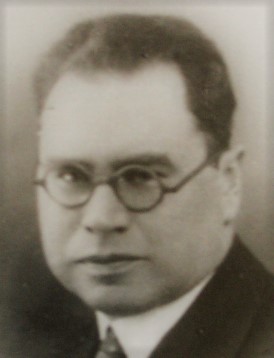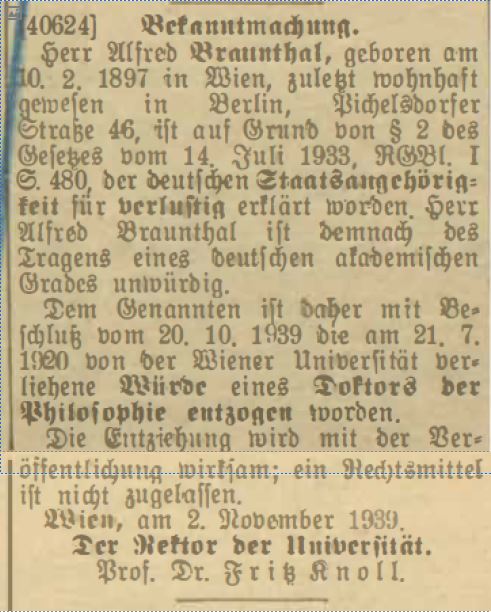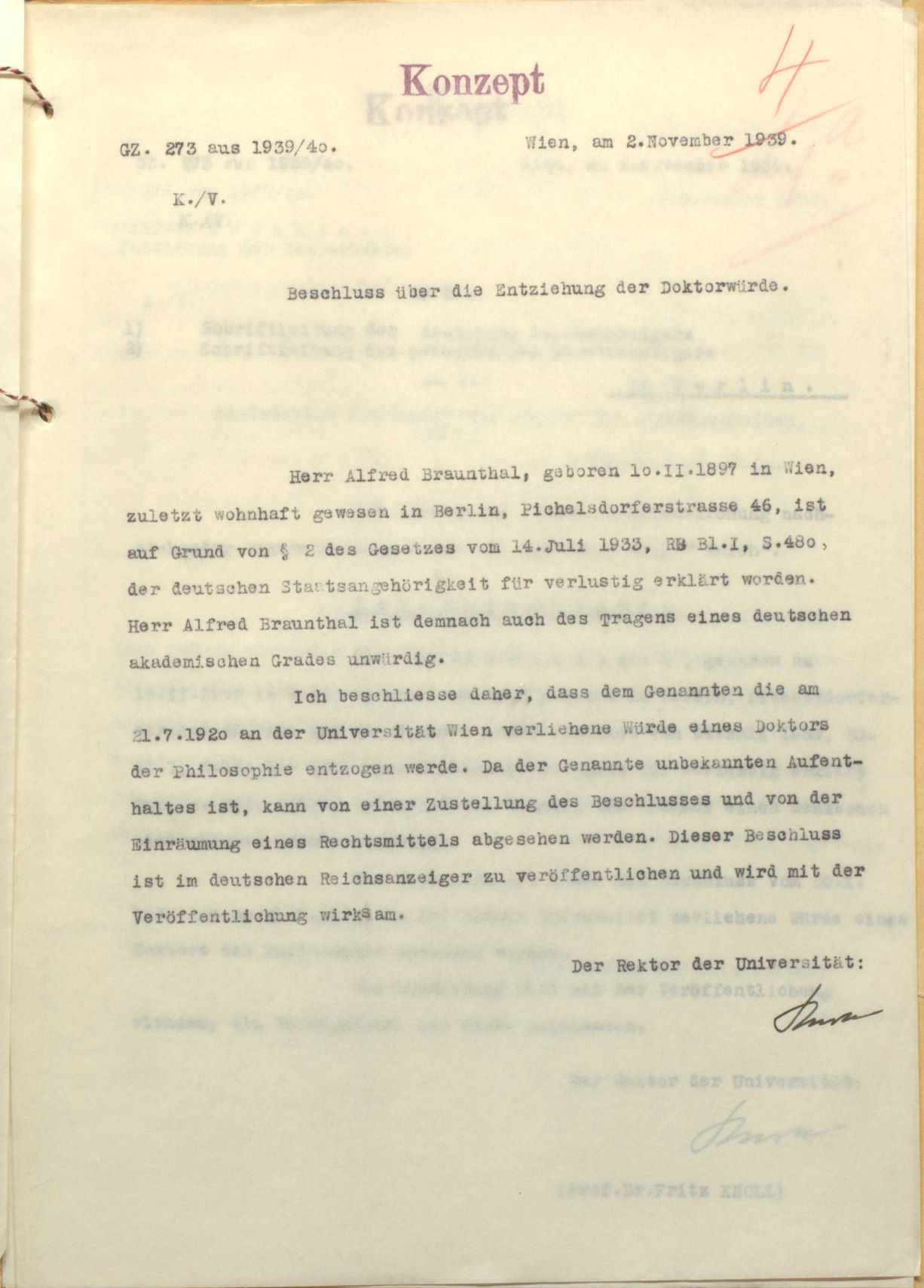
| Born: | 02-10-1897 |
| Faculty: | Philosophical School |
| Category: | Deprivation of academic degree |
Alfred Braunthal, son of Maier Braunthal (accountant, 1836-1914) and Klara Braunthal, née Zoller (1862-1940), had studied philosophy, history and economics in Vienna and Berlin from 1917-1920 and received his doctorate in philosophy from the University of Vienna on July 21st, 1920.
Like his siblings Julius (1891-1972) and Bertha (1887-1967), he was involved in the workers' movement and was a member of the socialist youth and student movement in Vienna. He became secretary of Der Oesterreichische Volkswirt in Vienna in 1920 and went to Germany in 1921, where he became financial editor of the Leipziger Volkszeitung in Thuringia and lecturer at the Heimvolkshochschule Tinz near Gera, which he also directed from 1925-1928. From 1929 to 1933 he was a staff member of the Research Center for Economic Policy in Berlin and developed a broad lecture and publication activity for the SPD. He was married to Erna Elkan and they had two children, Gerard Braunthal (1923-2014, political scientist) and Inge Braunthal (1927-?). After his wife's death in 1928, he married her sister, the educator Hilde Elkan (1903-?), in 1929.
After Hitler's seizure of power in Germany, he emigrated to Vienna in March 1933 and on to Belgium in May 1933, where he lived and worked in Brussels as an economic advisor in the banking industry until February 1936. He also worked as an assistant to the socialist theorist Hendrik de Man and took part in SDP leadership activities and work on the party program - interrupted by a year of study at the London School of Economics in England/Great Britain in 1935.
On March 14th, 1936 he emigrated from Southampton/England (with the SS Aurani) to the U.S., was Research Director of the United Hatters, Cap and Millinery Workers International Union from 1937; 1939-45 Executive Board member of the GLD/German Labor Delegation. In 1943 he became an American citizen and was a member and research officer of the American Labor Conference on international Affairs.
In 1949-50 he was called back to Brussels, Belgium, as head of the economic and social department at the newly formed International Confederation of Free Trade Unions (ICFTU) and later became ICFTU deputy general secretary (until 1968).
His works include Marx as Philosopher of History (Berlin 1920); Geld und Valuta. An Inquiry into the Problems of Internal and External Demonetization (Leipzig, 1922); The Developmental Tendencies of the Capitalist Economy (1927); The Economy of the Present and Its Laws (Berlin 1932); The World Economic Crisis (Berlin 1933); Safeguards against Labor Conditions in Backward Countries (New York 1944); as well as numerous contributions to anthologies and journals such as Der Kampf (Vienna); Die Gesellschaft (Berlin); Vorwaerts (Berlin); Social Research (New York); International Labor Review (Geneva); International Postwar Problems (New York); Free Labor World (Brussels); Gewerkschaftliche Monatshefte (Cologne).
In 1970 he moved back to the USA, lived in Chestnut Hill from 1977 and died on February 4th, 1980 in Boston, Massachusetts/USA.
In 2017, a "Stolperstein" was laid as a memorial marker for him, his wife and his two children in front of his former official residence at the Heimvolkshochschule Tinz in Gera/Germany (Weg der Freundschaft 4) (artist: Gunter Demnig).
Lit: Archive of the University of Vienna/National PHIL 1917-1920, graduation protocol PHIL 1920; RÖDER 1983, 89; STADLER I 2004 [1987], 264, 266, 520; BLUMESBERGER 2002, 161; POSCH 2009, 274, 398; Stolperstein Gera.
Herbert Posch

